- 13 Feb 2024
- Cold Call Podcast
Apple’s Dilemma: Balancing Privacy and Safety Responsibilities
In 2015, Apple debuted the iPhone 6S, which employed a default encryption system preventing both Apple and government authorities from accessing data stored on the device. Then, in 2016, a federal judge ordered Apple to provide technical assistance to unlock the iPhone used by one of the mass shooters in San Bernardino, California. Apple refused to comply. Years later, as the COVID-19 pandemic swept across the globe in 2020, Apple and Google partnered to develop a contact tracing application that would collect information about users infected with the disease and notify those who they had been in contact with. The app would keep information about infection and contact private, but some governments wanted more access. When Apple and Google declined to provide this information, they sparked a debate about the companies’ responsibilities for their customers’ personal privacy versus public health. Most recently, in September 2021, Apple decided to delay operating systems updates that included features to fight child sexual abuse. While many praised Apple, others worried that Apple’s new features risked undermining the privacy of all users. As each of these situations unfolded, Apple CEO Tim Cook had to consider both his responsibilities to global governments and society, as well as to Apple's customers, employees, and shareholders. Harvard Business School senior lecturer Henry McGee and professor Nien-hê Hsieh discuss the tension between privacy and safety through the “Apple: Privacy vs. Safety” series of cases.
Podcast →
→

- 12 Feb 2024
- The Parlor Room
Season 1 Bonus Content (Part 1): Mike Wheeler, Jill Avery, Jeff Bussgang, and Nien-hê Hsieh
In this special episode of The Parlor Room, host Chris Linnane shares hidden gems from his conversations with Harvard Business School faculty members Mike Wheeler, Jill Avery, Jeff Bussgang, and Nien-hê Hsieh. Tune in for their insights on negotiation, branding, entrepreneurship, and ethics.
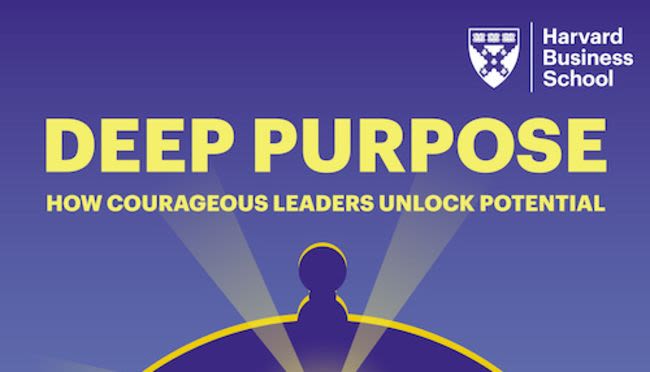
- 12 Feb 2024
- Deep Purpose
From the Frontlines to the C-Suite: How Penny Pennington Discovered Her Purpose at Edward Jones
Few CEOs can claim that they started in entry-level positions at the companies they now lead. Penny Pennington is one of those few, rising from financial advisor to CEO and Managing Partner at Edward Jones. In this episode, Pennington reflects on how Edward Jones’ purpose – “to partner for positive impact” – motivated her personal and professional life and, nowadays, how she has been working to realize that sense of purpose for Edward Jones’ employees, clients, and the communities in which they live.
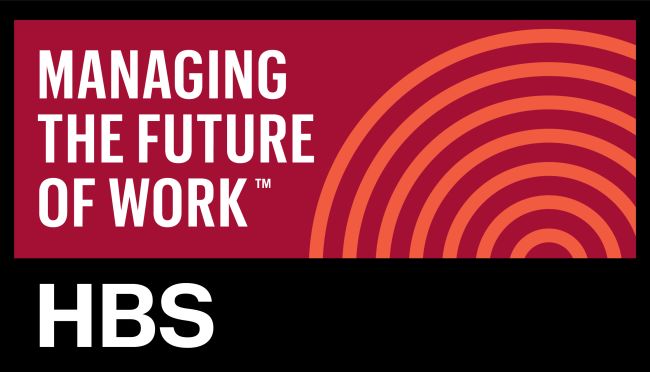
- 07 Feb 2024
- Managing the Future of Work
ServiceNow’s Amy Regan Morehouse on workforce transformation
Employers are wrestling with how to provide the resources and foster the motivation workers need for continuous learning in an AI-altered economy. Workers of all stripes are looking to acquire the skills to compete. How is the company coordinating with its employees and its training partners?

- 05 Feb 2024
- Deep Purpose
What it Takes to Lead a Successful Turnaround in Health Care
As a veteran leader in the healthcare sector, José (Joe) E. Almeida, Chairman, President & CEO of Baxter, has made a lot of tough decisions. He led the successful turnaround of the Illinois-based multinational by calling on leadership lessons he gained from his family in Brazil. Almeida says courage is not the absence of fear, but the determination to press on when times are difficult.
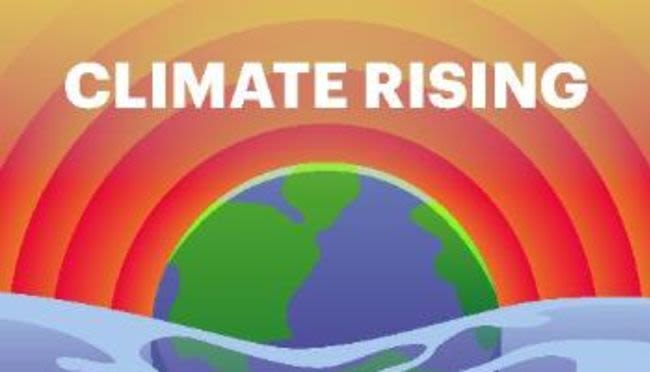
- 31 Jan 2024
- Climate Rising
Decarbonizing Industrial Processes with Material Science
This episode continues Climate Rising's hard-to-abate series, and features Shreya Dave, CEO and Co-founder of Via Separations. Shreya describes how her company is decarbonizing the industrial sector by using material science to create a much less energy intensive and cheaper approach to separate substances, a common step in many industrial processes. Shreya talks about her company's journey, the challenges of market adoption, and the strategic partnerships that have been pivotal. She also shares some career advice. Climate Rising Host: Professor Mike Toffel, Faculty Chair, Business & Environment Initiative Guest: Shreya Dave, CEO and Co-Founder Via Separations For transcripts and other resources, visit climaterising.org.
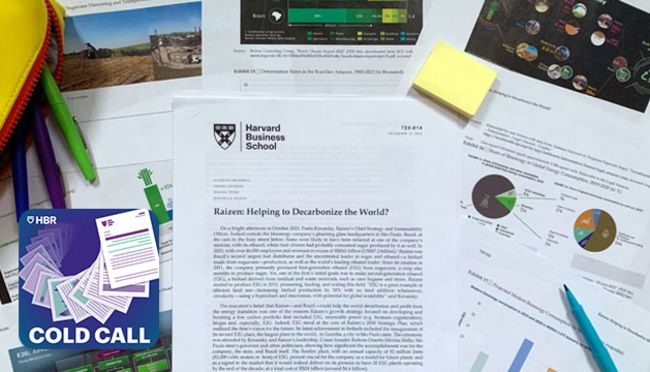
- 30 Jan 2024
- Cold Call Podcast
Can Second-Generation Ethanol Production Help Decarbonize the World?
Raízen, a bioenergy company headquartered in São Paulo, is Brazil’s leader in sugar and ethanol production and the world’s leading ethanol trader. Since its creation in 2011, the company had primarily produced first-generation ethanol (E1G) from sugarcane, a crop that can also be used to produce sugar. In 2015, Raízen also started to produce second-generation ethanol (E2G), a biofuel derived from residual and waste materials, such as cane bagasse and straw – which don’t compete with food production. The company’s growth strategy focused on developing and boosting a low carbon portfolio that focused on E2G, based on the belief that Raízen—and Brazil—could help the world decarbonize and profit from the energy transition. Paula Kovarsky, Raízen’s chief strategy and sustainability officer, was confident the company could become a global green energy champion. But after the board’s approval for the first round of E2G investments, she faced a complex challenge: how to expand the market for second-generation ethanol and other sugar-cane waste biofuels, in order to ensure Raízen’s long-term growth? Harvard Business School professor Gunnar Trumbull and Kovarsky discuss the company’s strategy for bringing second-generation ethanol to the world in the case, “Raízen: Helping to Decarbonize the World?”

- 24 Jan 2024
- Managing the Future of Work
Shopify’s Tia Silas on rewiring HR for a remote-first e-commerce company
How do you re-engineer the people function to support a post-Covid virtual organization? Shopify’s CHRO explains.

- 22 Jan 2024
- The Parlor Room
Linda Hill on Leading Change and the Paradoxes of Management
Great leadership requires being both a value creator and a game changer. In this episode of The Parlor Room, host Chris Linnane sits down with HBS Professor Linda Hill to explore what that means through the lens of Pfizer's COVID-19 vaccine development. They also discuss the paradoxes of management and the three roles leaders must play to innovate and meet customers' needs in the digital age.

- 17 Jan 2024
- Climate Rising
Decarbonizing Aviation with McKinsey
This episode in our hard-to-abate series features aviation expert Robin Riedel, a Partner at McKinsey & Company who co-leads the McKinsey Center for Future Mobility. Robin describes five approaches to decarbonize aviation: upgrading aircraft, improving operational efficiency, sustainable aviation fuel, other novel fuels and aircraft configurations, and carbon credits. We also learn about some McKinsey engagements on aviation decarbonization, and conclude with Robin’s career advice. Climate Rising Host: Professor Mike Toffel, Faculty Chair, Business & Environment Initiative Guest: Robin Riedel, Partner and co-head of the McKinsey Center for Future Mobility For transcripts and other resources, visit climaterising.org
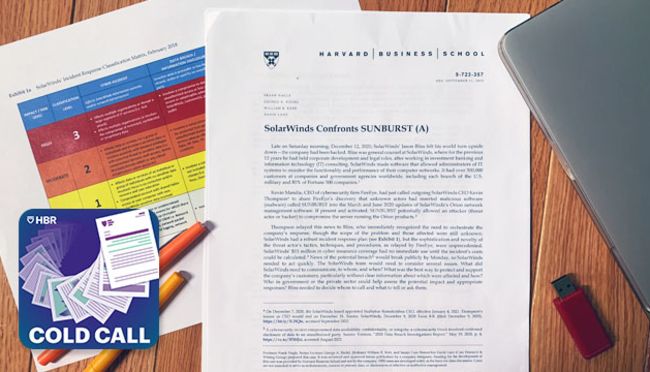
- 16 Jan 2024
- Cold Call Podcast
How SolarWinds Responded to the 2020 SUNBURST Cyberattack
In December of 2020, SolarWinds learned that they had fallen victim to hackers. Unknown actors had inserted malware called SUNBURST into a software update, potentially granting hackers access to thousands of its customers’ data, including government agencies across the globe and the US military. General Counsel Jason Bliss needed to orchestrate the company’s response without knowing how many of its 300,000 customers had been affected, or how severely. What’s more, the existing CEO was scheduled to step down and incoming CEO Sudhakar Ramakrishna had yet to come on board. Bliss needed to immediately communicate the company’s action plan with customers and the media. In this episode of Cold Call, Professor Frank Nagle discusses SolarWinds’ response to this supply chain attack in the case, “SolarWinds Confronts SUNBURST.”

- 10 Jan 2024
- Managing the Future of Work
Transplanting college to the corporate campus to develop talent for good jobs
If schools aren't turning out job-ready grads, can employer-led partnerships reengineer the talent pipeline to meet the demand and provide opportunities for a diverse workforce? J.D. Hickey, president and CEO of Blue Cross Blue Shield of Tennessee, on his firm's collaboration with East Tennessee State University, the BlueSky Tennessee Institute, a work-based accelerated computer science bachelor's program based at the insurer's corporate campus.

- 08 Jan 2024
- The Parlor Room
Forest Reinhardt on Climate Change and the Tragedy of the Commons
In this episode, host Chris Linnane and Harvard Business School Professor Forest Reinhardt discuss the tragedy of the commons and how businesses can navigate the complex challenges of climate change.

- 03 Jan 2024
- Climate Rising
The Health Risks of Natural Gas Stoves
This bonus episode of Climate Rising features an episode from the Harvard Chan School of Public Health's podcast "Better Off" that explores the intersection of decarbonization and public health. While decarbonization requires shifting away from fossil fuels, this episode emphasizes the equally crucial health reasons to do so – especially for natural gas stoves. Tune in for a thoughtful conversation led by Anna Fisher-Pinkert of the Harvard Chan School of Public Health and her guests Brady Seals, Drew Michanowicz, and Jon Kung. Guest/Host: Anna Fisher-Pinkert, Director of Digital Strategy at Harvard T.H. Chan School of Public Health Brady Seals, Manager of RMI’s Carbon-Free Buildings program Drew Michanowicz, senior scientist, PSE Healthy Energy Jon Kung, Chef For transcripts and other resources, visit climaterising.org
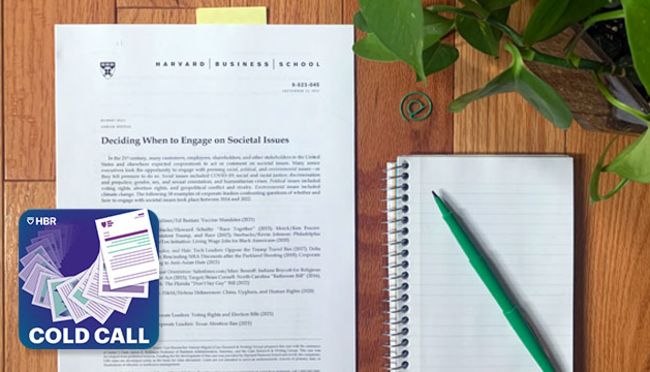
- 02 Jan 2024
- Cold Call Podcast
Should Businesses Take a Stand on Societal Issues?
Should businesses take a stand for or against particular societal issues? And how should leaders determine when and how to engage on these sensitive matters? Harvard Business School Senior Lecturer Hubert Joly, who led the electronics retailer Best Buy for almost a decade, discusses examples of corporate leaders who had to determine whether and how to engage with humanitarian crises, geopolitical conflict, racial justice, climate change, and more in the case, “Deciding When to Engage on Societal Issues.”

- 27 Dec 2023
- Managing the Future of Work
Revisiting Upward Mobility: The 2023 American Opportunity Index
In its second iteration, the corporate scorecard draws on a wider range of worker outcomes to rank Fortune 500 employers on how well they boost career prospects. The index is a collaboration of the HBS Managing the Future of Work Project, the Burning Glass Institute, and the Schultz Family Foundation. Matt Sigelman, president of the Burning Glass Institute, and Rajiv Chandrasekaran, managing director of the Schultz Family Foundation, join host Bill Kerr.

- 20 Dec 2023
- Climate Rising
Sweden’s Northvolt Quest to Build the World’s Greenest EV Batteries
This bonus episode of Climate Rising features an episode of Harvard Business Review’s Cold Cast podcast with Brian Kenny interviewing HBS professor George Serafeim about his case on Northvolt, a Sweden-based start-up company producing batteries for Europe’s EV auto manufacturers. They'll discuss Northvolt’s efforts to build government partnerships, hire the right people, and attract financing in order to scale rapidly. Guest/Host: Brian Kenny, Chief Marketing and Communications Officer, Harvard Business School and host of Cold Call George Serafeim, Charles M. Williams Professor of Business Administration, Harvard Business School For transcripts and other resources, visit climaterising.org.

- 18 Dec 2023
- Deep Purpose
Mastercard CEO Michael Miebach on Driving the Future of the Digital Economy
What’s really in a payment? During his career at Mastercard, Michael Miebach has strived to understand how payment solutions make a difference in people’s lives, even before his appointment as CEO. In this episode, Miebach explains how he thinks through powering the economy in an increasingly digital (if uncertain) world and the leadership required to do so.

- 18 Dec 2023
- The Parlor Room
Joshua Margolis on Elevating Your Leadership Style
Host Chris Linnane welcomes Harvard Business School Professor Joshua Margolis to The Parlor Room to discuss how to develop yourself as a leader and dive into the story of how the CEO of the world's largest denim jeans company inspired and engaged employees to implement change and drive performance.

- 13 Dec 2023
- Managing the Future of Work
Revelio Labs’ Ben Zweig on creating a universal HR database
Do we need new terms and frameworks to capture important data about fast-changing labor markets? As the volume of workforce data increases, so does the strategic value of market and firm-level analysis.

Apple’s Dilemma: Balancing Privacy and Safety Responsibilities
In 2015, Apple debuted the iPhone 6S, which employed a default encryption system preventing both Apple and government authorities from accessing data stored on the device. Then, in 2016, a federal judge ordered Apple to provide technical assistance to unlock the iPhone used by one of the mass shooters in San Bernardino, California. Apple refused to comply. Years later, as the COVID-19 pandemic swept across the globe in 2020, Apple and Google partnered to develop a contact tracing application that would collect information about users infected with the disease and notify those who they had been in contact with. The app would keep information about infection and contact private, but some governments wanted more access. When Apple and Google declined to provide this information, they sparked a debate about the companies’ responsibilities for their customers’ personal privacy versus public health. Most recently, in September 2021, Apple decided to delay operating systems updates that included features to fight child sexual abuse. While many praised Apple, others worried that Apple’s new features risked undermining the privacy of all users. As each of these situations unfolded, Apple CEO Tim Cook had to consider both his responsibilities to global governments and society, as well as to Apple's customers, employees, and shareholders. Harvard Business School senior lecturer Henry McGee and professor Nien-hê Hsieh discuss the tension between privacy and safety through the “Apple: Privacy vs. Safety” series of cases.